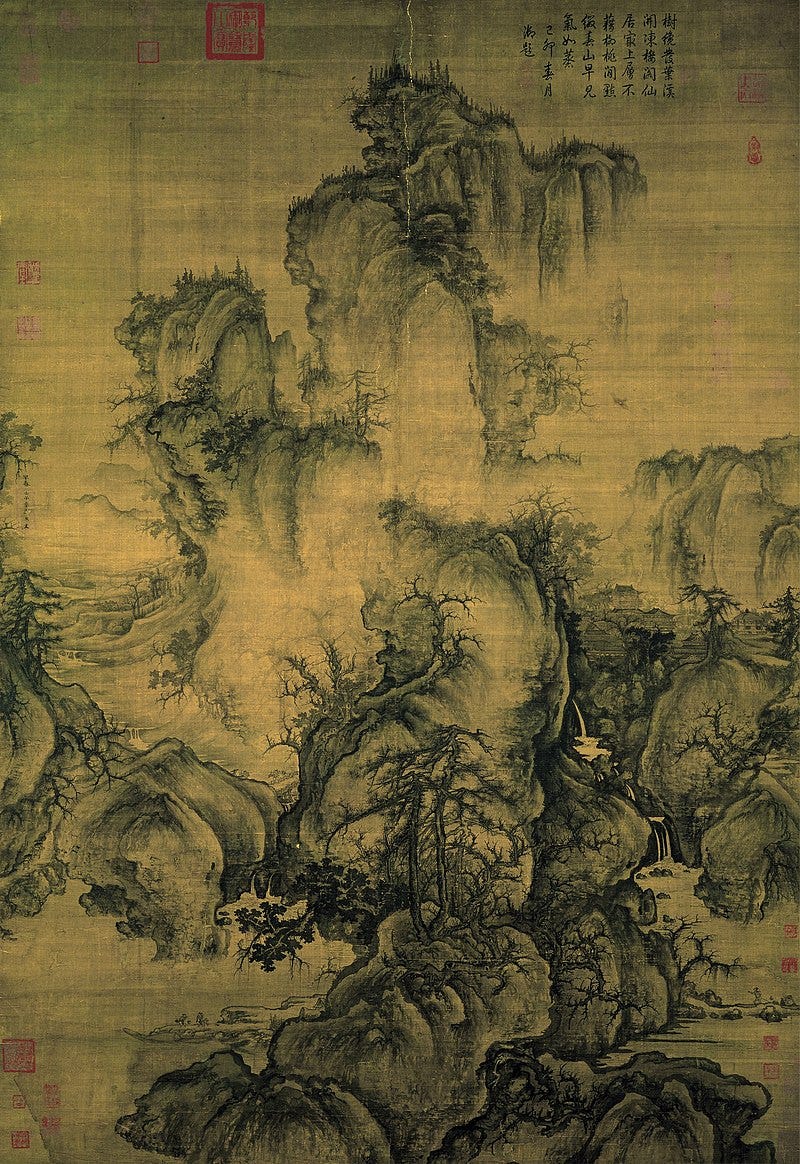The Japanese poet Matsuo Bashō (松尾 芭蕉) (1644-1694) “reinvented” the haiku and gave the form “a power and seriousness [it] rarely had before.” (Hass, p. 3.) By his thirties he had mastered traditional Japanese verse, including the haiku form, but he sought new boundaries. He turned back to his books and studied Chinese poetry, particularly the poets of the Tang Dynasty (618-905). From the Chinese models his poetry took on “a plainness and depth very different from the rather showy and playful poems in the Japanese tradition.” (Id.)
Before examining the poetry itself, it is helpful to understand the philosophy behind it. Fortunately, Bashō left a record of his views on poetry. He collected his philosophy of poetry in an essay called simply “Learn from the Pine.” In a spare, aphoristic style, he provides instructions on how to write good poetry.
The title comes from his admonition:
Learn about pines from the pine, and about bamboo from the bamboo. (Id., p. 233.)
Poetry is about experiencing, not classroom learning. Only a direct experience of the poetic object can give the truest impression of what it is. All the scientific literature in the world cannot improve upon the actual experience of sitting in front of a pine tree and observing it. In a similar vein:
Make the universe your companion, always bearing in mind the true nature of things – mountains and rivers, trees and grasses, and humanity – and enjoy the falling blossoms and the scattering leaves. (Id.)
Later, Bashō gives his implicit explanation:
Every form of insentient existence – plants, stones, or utensils – has its individual feelings similar to those of men. (Id., p. 237.)
Even observing the objects themselves, it is easy to forget their true nature, still bearing the impressions of what life has conditioned one to think of a mountain or a river. The poet must strip away all preconceptions and behold the thing-in-itself to gain the truest experience of it – the experience that produces poetry.
Elaborating further on this theme, Bashō advises:
Don’t follow in the footsteps of the old poets, seek what they sought. (Id.)
Keep reading with a 7-day free trial
Subscribe to The Chained Muse to keep reading this post and get 7 days of free access to the full post archives.


